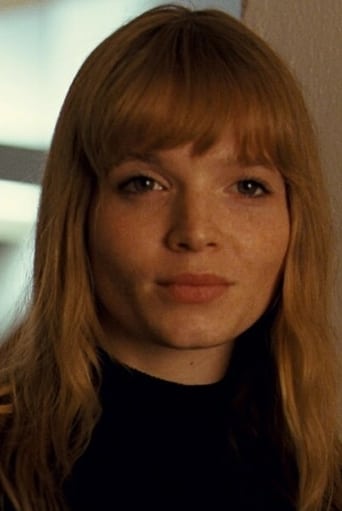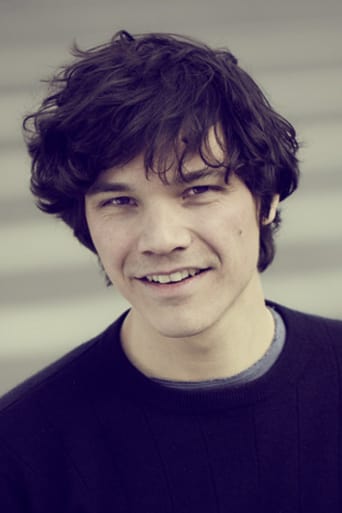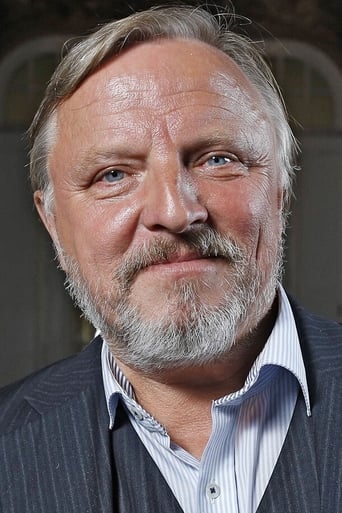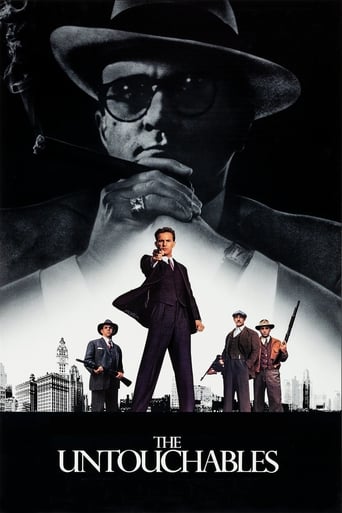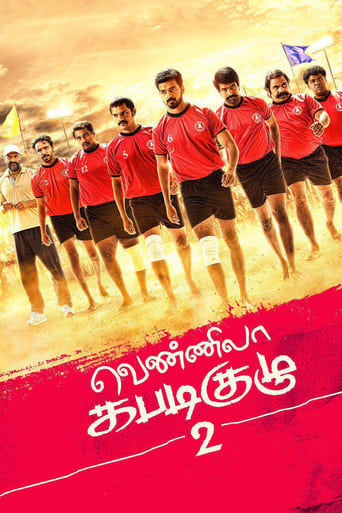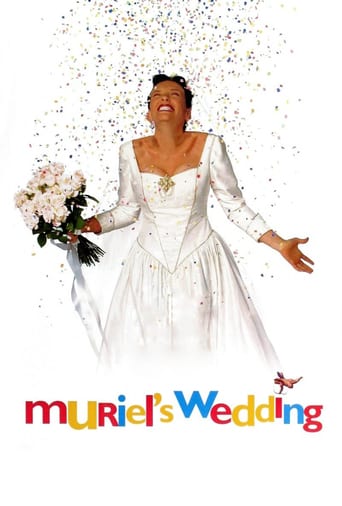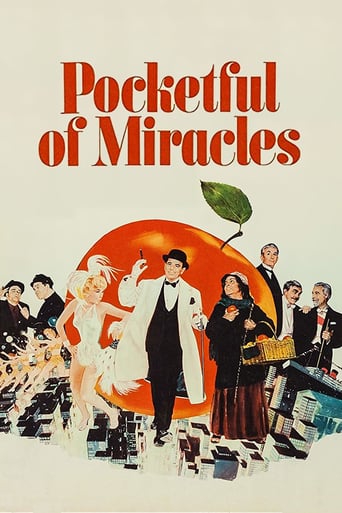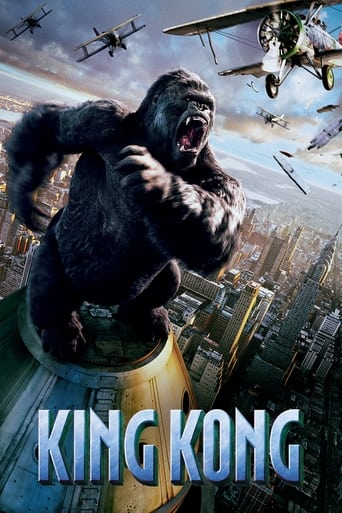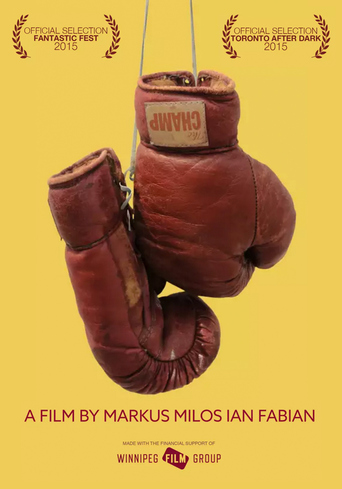
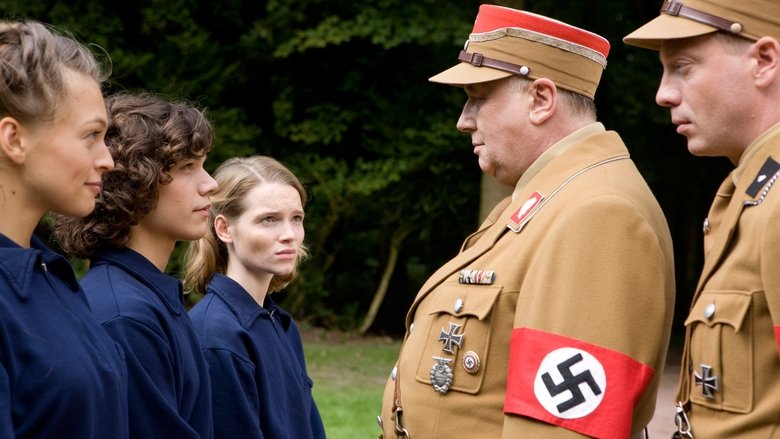
Berlin '36 (2009)
Berlin 36 is a 2009 German film telling the fate of Jewish athlete Gretel Bergmann in the 1936 Summer Olympics. She was replaced by the Nazi regime by an athlete later discovered to be a man. The film is based on a true story and was released in Germany on September 10, 2009. Reporters at Der Spiegel challenged the historical basis for many of the events in the film, pointing to arrest records and medical examinations indicating German authorities did not learn Dora Ratjen was male until 1938.
Watch Trailer
Cast


Similar titles
Reviews
A brilliant film that helped define a genre
The film creates a perfect balance between action and depth of basic needs, in the midst of an infertile atmosphere.
Great story, amazing characters, superb action, enthralling cinematography. Yes, this is something I am glad I spent money on.
Great example of an old-fashioned, pure-at-heart escapist event movie that doesn't pretend to be anything that it's not and has boat loads of fun being its own ludicrous self.
The title of Kaspar Heidelbach's "Berlin '36" gives away basically already what this is about: the Berlin Olympic Games 1936. Well, this is only true to some extent. It is really more about the fate of high jumper Gretel Bergmann (Karoline Herfurth) before the actual event. She is a Jew, which leads to difficulties in terms of her getting nominated for the team. However, it was really the Nazis who got her back from London in order to show the world that religion does not matter in the grand picture when it comes to an event like the Olympic Games. Of course, it is all make-believe and in the end, she is not allowed to participate. But this film is also about a second athlete, Marie Ketteler, who is brought in by the Nazis to take Bergmann's place in the squad. She is played by Sebastian Urzendowsky and I must say, this is also my biggest criticism about this film. Maybe, it was because I knew the actor before, but I never saw something in him that people would think he is a woman. The long hair and not too masculine face weren't too bad for the role, but his deep voice destroyed it all. Apart from that, I think he is not a particularly gifted actor.Luckily, the other male (older) actors made up for this. Thomas Thieme is great fun as always and his reaction when he reads Ketteler's medical file is priceless. Axel Prahl is reliable and likable as usual and Robert Gallinowski was a positive surprise, played his part very well. Back to Thieme's character, I also liked the scene, in which he shakes hands with the athletes, not only because he ignores Bergmann, but also because of how he lacks all enthusiasm when he shakes Ketteler's hand, the enthusiasm that he had before when he shook the hands of the non-degenerate athletes. Ketteler is basically just a tool for him to get rid off Bergmann, but he still somewhat despises her for her imperfection.All in all, this 6-year-old movie was a pretty good watch. It is not historically accurate on many occasions (for example the names except Bergmann), but it takes on a truly interesting subject and proves that it is still possible, after all these years and films, to bring something new to the screen in terms of Nazi Germany. Bergmann, by the way is still alive today, over 100 years old in 2015. I recommend this film. It's a good mix of political thriller and historical context with smart dramatic elements. If you want to see a bit of a boys' version, I suggest you check out "Napola" about a couple boxers training for the Olympic Games 1936 as well. But back to this one: I can totally see why Herfurth is among the most famous German actresses right now. She plays her part well and carries this film nicely despite her young age.
The year is 1936 in the Germany of Adolf Hitler and the '36 Olympics is to be held in Berlin. Germany's best high jumper is the Jewish Gretel Bergmann which creates a problem for the Nazi sports establishment. If they field a Jew and she wins a gold, Hitler would not be amused and this could have nasty repercussions for the officials in charge. Ergo the plan is to enter a ringer, a talented male jumper who has been masquerading as female jumper with success. Though that may sound improbable it actually happened. The jumper is identified as Marie Ketteler though his real name at the time was Dora Ratjen.The main action begins at the training camp where Gretel and Marie are room mates. As a Jew, Gretel is subject to continuous slights and insults and Marie is portrayed as supportive. The biggest deviation from reality was the scene in which Marie reveals himself to Gretel to be male. Gretel said she only found out about it years latter from an article in Time Magazine on males who competed as females. Gretel is omitted from the competitors due to lack of performance. Marie competes and finishes fourth. The film suggests Marie intentionally performed poorly out of protest to the exclusion of Gretel and as Marie set a new world record in 1938 this does lend some credence to that portrayal.The most interesting scenes are at the camp with the actors practicing their jumps. Thereafter the narrative gets lost in the machinations of Gretel's expulsion and the scenes at the Olympic village are too fakey.Karoline Herfurth gives a credible performance as the embattled Gretel while Sebastian Urzendowsky performs heroically in dresses. As a film its strongest point is the strangeness of the circumstances rather than any merit as a drama.
If this had not been based on true events it would be hard to pass this off as a feasible storyline. But, in the freak show that was Nazi Germany, anything is (and was) tragically possible.One should not forget that this was just a sporting event - and the voracity of 'The Games' has always been in question - then and since. But the effect, on all the characters of this film, of the manipulation and corruption of the event as a political propaganda exercise was startling.The mood and locations of Berlin 36 were impressive, as were the cinematic effects. The cast were excellent, Herfurth gritty and determined, and a particularly difficult role for the actor playing Marie.One could argue that the male pretending to be female was stretching credibility and was obviously a fraud, but then I remember a lot of the East German and Soviet 'female' athletes of the 70s looking decidedly masculine...how they passed muster I shall never know. Another example of how nation states can pervert the Olympics.The atmosphere begins originally light (as you would expect with a gathering of female teenage athletes), but still with the sinister undercurrent of emerging anti-semitism becoming more blatant and personal with plenty of dark clouds gathering on the horizon.The story tells itself. It portrays other individuals' guilt and culpability but in a not overtly judgemental way. The facts are laid out and the conclusions inescapable. Good storytelling, well directed and entertaining. I would recommend this film not just as a welcome reminder, should one be needed, of what a supposedly civilised nation is capable of but also as a fascinating account of what effect moral bankruptcy can have throughout the whole of society and on the individuals concerned for the remainder of their lives (should they be lucky enough to survive, of course).
With Singapore hosting our first Olympics event, albeit the inaugural Youth Olympic Games, perhaps it is apt for us to reflect upon the importance of the values and spirit promoted by the Games toward the notion of Swifter, Higher, Stronger, because not always were the Games free from influence other than sports excellence and the triumph of human determination and to see how perseverance and training paid off.Based on a true story and set in 1936 Berlin, where Germany is on the cusp of holding their first Olympic Games in the summer, Berlin 36 tells of how politics managed to get embroiled into sports, no thanks to Adolf Hitler sweeping into power some three years before, and taking the Games as a platform to further his party's propaganda, extending his prejudice and discrimination toward the Jews in not allowing them to compete under the German flag. This of course does not bode well for the United States, and to appease them in order to stave off a potential boycott by the US and her allies, the Germans had to pass off a show to rescind their decision for the Jews exclusion. This means that the world's best high jumper of the time, the German Jew Gretel Bergmann (Karoline Herfurth) had to be "persuaded" to return to the Fatherland for representation and competition.This drama directed by Kasper Heidelbach not only tackles the issue of the kind of extreme discrimination and belief in the superiority of the Aryan race, but poses a more thought- provoking examination at the macro level issues as faced by Gretel in tackling and addressing prejudices from all angles, being the lone athlete in a training village, treated like an outcast by fellow citizens. She finds it near impossible to show love and pride in being able to represent her country that doesn't love her back, what more to earn honours for it? Like any authoritarian regime, they function on the basis of threats not only to self but family, and is able to shape outcomes as desired through silence, and misdirection.And the worst was of course in hand-picking Marie Ketteler (Sebastian Urzendowsky) to become Gretel's chief rival both in training and the eventual competition, not that there was any intent anyway to allow Gretel to make it all the way to the Olympics proper. Marie is seemingly able to challenge Gretel one on one, which is quite expected should you read the synopsis or know the background of Marie's deep, dark secret. Like Gretel, Marie was also forced to be in the limelight to do as told, and deviations to the established plan was going to be frowned upon severely. What once began as a cold rivalry soon paves the way toward firm friendship, as both Gretel and Marie find themselves under the same circumstances of being played as puppets, and both harbour hopes of somehow being able to break away from the bonds that shackle them.It is precisely the chemistry between the cast, especially the leads, that pull this film off, in providing an engaging and engrossing premise for their cooperation/competition. Production values for this historical story is kept high, and also provided room to boast some fantastically designed sets and effects used to recreate 1930s Germany, as well as the impressively recreated Stadium used for the Games featuring huge Zeppelins flying overhead. These money shots at the finale will put you smack in the middle of the propaganda festivities where important decisions will be made by the leading two athletes, and one can imagine just how the actual mood and feel would be like on the streets and at the venue.I have a penchant for films about sports from the yesteryears, because when documented and portrayed accurately, allow the modern audience a glimpse into how the sport of today have evolved from time past. The high jump here is slightly different from the techniques and styles employed now, so that should pique your interest enough as one of the points to watch this film. There may be some quarters grumbling about how much the YOG budget is costing us, but let's not mix politics with this platform for our youths to have a go and competing with their peers representing the best from countries around the world.


